The Norwegian Ministry of Foreign Affairs , the Norwegian Agency for Development Cooperation (Norad), the National Innovation Support Centre (NSSC), and the United Nations Development Programme (UNDP) have just completed the training course "Enhancing innovation capacity to address plastic waste pollution".
The program, initiated by UNDP, took place on February 26 and 27 at the Saigon Innovation Hub, attracting many representatives from agencies, management officials, state-owned enterprises, start-up support organizations, and units in Ho Chi Minh City.
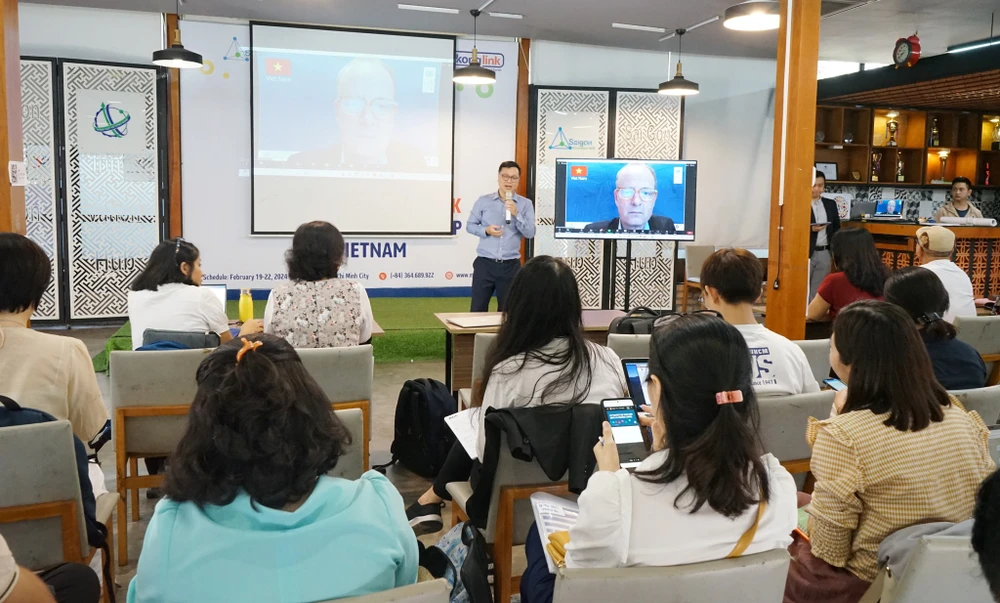
According to UNDP data, since 2018, Vietnam has discharged 3.7 million tons of plastic waste into the marine environment each year. Vietnam is making positive changes in innovation activities, which are rated at 46/132 countries in the world . Innovation in the public sector is indispensable to create a favorable national innovation system for businesses, startups and related organizations.
The training course will provide solutions to the problem of plastic waste pollution in the context that Ho Chi Minh City is discharging 3,000 tons of plastic waste into the environment every year (2022 data). To solve this problem, the representative of UNDP in Vietnam said that there is a need for innovative and creative ideas to effectively solve problems related to plastic waste.
Mr. Patrick Heverman, Deputy Resident Representative of UNDP in Vietnam, said that the three points to note in the training course include: Improving tools and information for civil servants, thinking about the life cycle of plastic; Building capacity for stakeholders in the public sector in enhancing connectivity and promoting a culture of innovation in the ecosystem. In addition, scaling up is important, thereby finding positive solutions in solving problems between the public and private sectors in solving the problem of plastic waste.
Coming to the course, the representative of the Go Vap District Environmental Cooperative shared about the collection and management of household waste in the district. Specifically, currently, the Cooperative is responsible for collecting up to 90% of the household waste of local residents with 1 city transfer station and 1 garbage collection point. In addition, the Go Vap District Environmental Cooperative also has a network of scrap yards responsible for collecting recyclable waste and plastic waste in the area. The unit is also piloting a Green Point waste collection point at a number of schools.
Thanks to the application of digital transformation measures, the management of household solid waste is more convenient and effective, people can schedule collection right on their smartphones. Statistics show that the number of people participating in waste sorting at source increases year by year, reducing the amount of waste released into the environment, contributing to protecting the living environment in residential areas.
However, at present, the unit still faces many difficulties such as lack of operating funds; The application of technology is still quite new to scrap yards, people and garbage collectors. Communicating to people about waste classification at source and using apps to schedule collection still has many limitations.
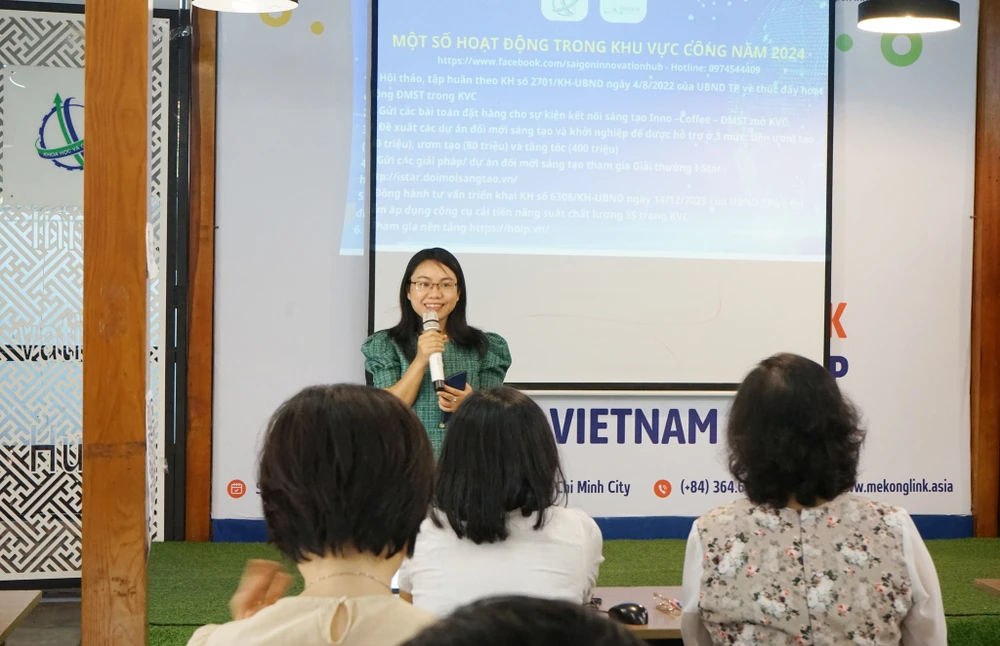
According to Ms. Dang Thi Luan, Deputy Director in charge of Saigon Innovation Hub, the 2-day training course with practical tools and support from experts aims to increase awareness and share information on plastic waste pollution. Thereby, improving management capacity, promoting innovation in the public sector through practicing appropriate innovation tools for public sector officials, including state management agencies, institutes and schools.
BUI TUAN
Source




![[Photo] Prime Minister Pham Minh Chinh receives Governor of Gunma Prefecture (Japan) and Special Advisor to the Japan-Vietnam Friendship Parliamentary Alliance](/_next/image?url=https%3A%2F%2Fvphoto.vietnam.vn%2Fthumb%2F1200x675%2Fvietnam%2Fresource%2FIMAGE%2F2025%2F11%2F25%2F1764066321008_dsc-1312-jpg.webp&w=3840&q=75)

![[Photo] Close-up of Ba Ha River Hydropower Plant operating to regulate water to downstream](/_next/image?url=https%3A%2F%2Fvphoto.vietnam.vn%2Fthumb%2F1200x675%2Fvietnam%2Fresource%2FIMAGE%2F2025%2F11%2F25%2F1764059721084_image-6486-jpg.webp&w=3840&q=75)

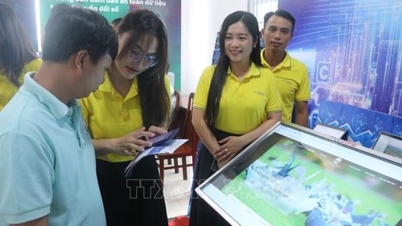

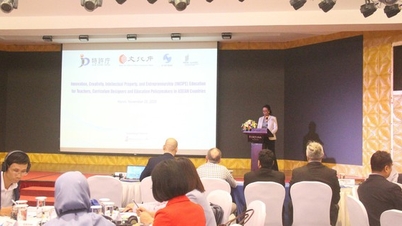



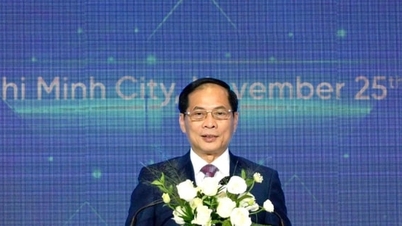

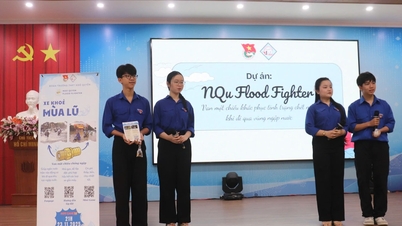

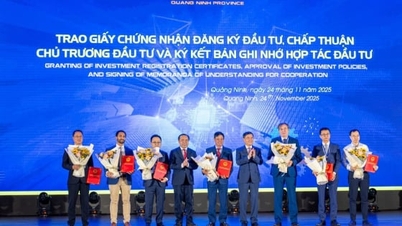

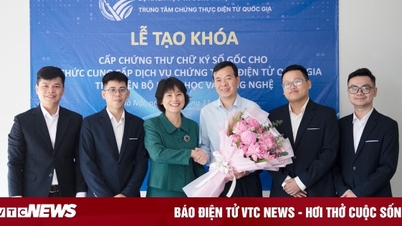

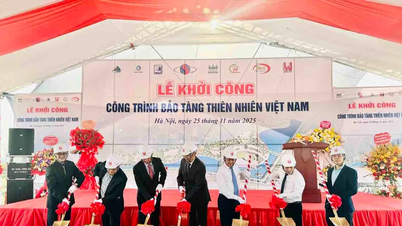



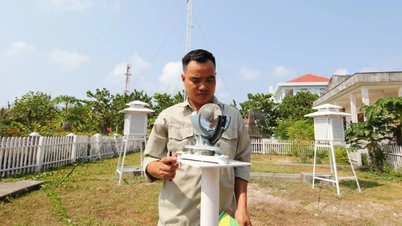
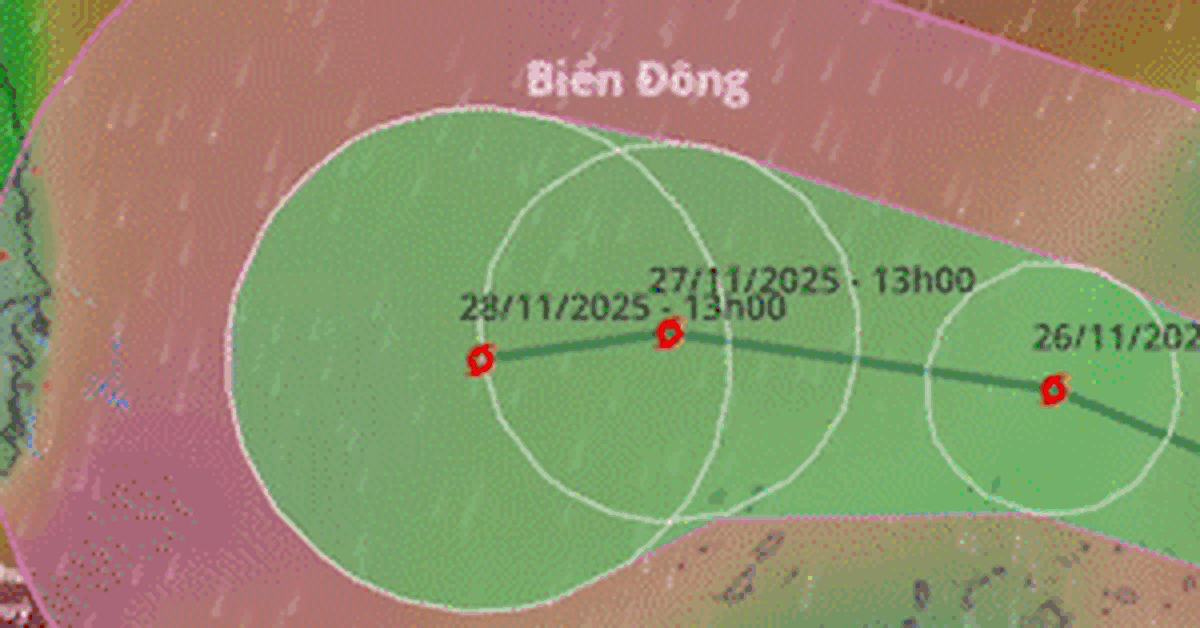






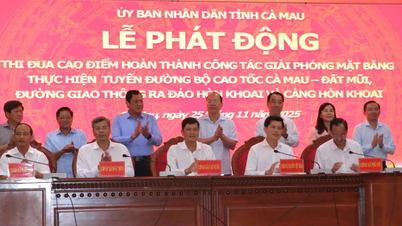
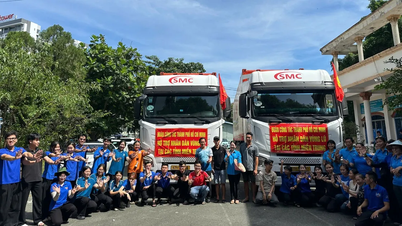
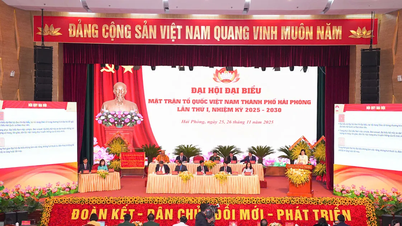
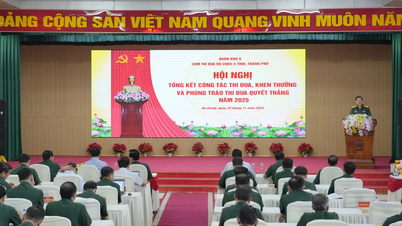
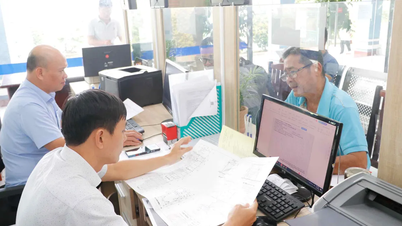
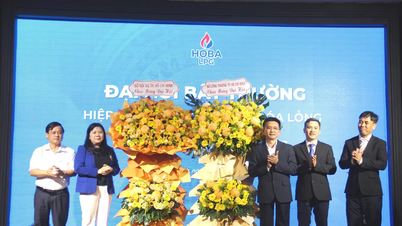


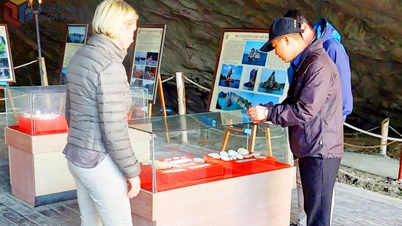



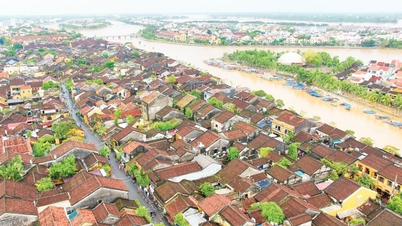
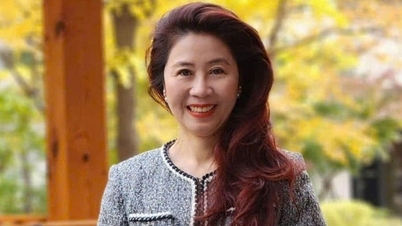
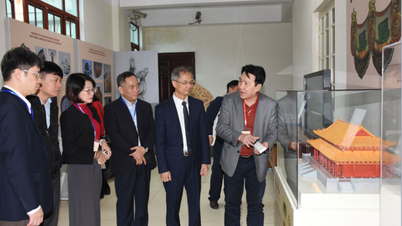

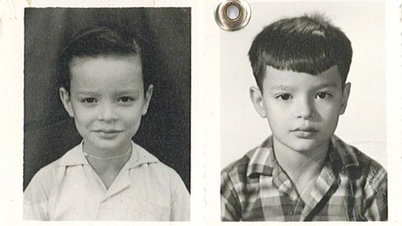
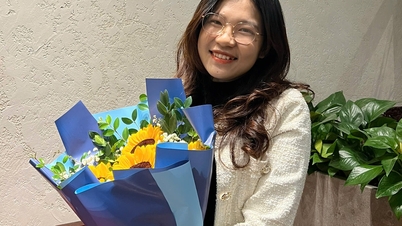



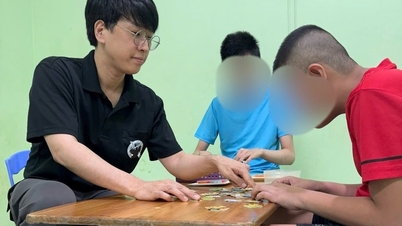

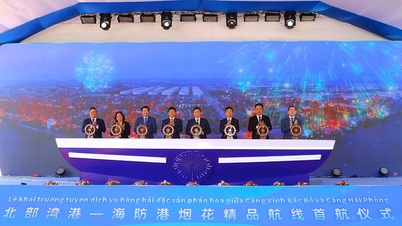

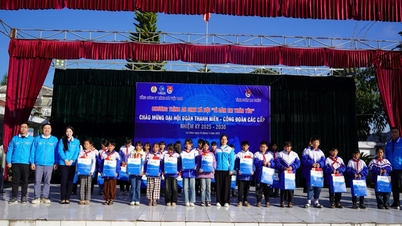
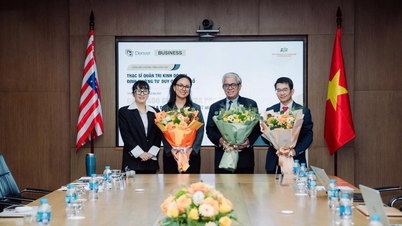

![[Answer] Should I install an elevator for an old renovated house?](https://vphoto.vietnam.vn/thumb/402x226/vietnam/resource/IMAGE/2025/11/25/1764039191595_co-nen-lap-thang-may-cho-nha-cai-tao-cu-khong-04.jpeg)








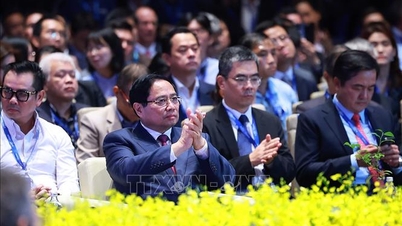




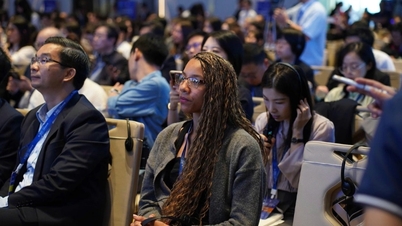




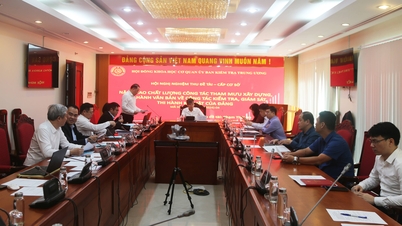

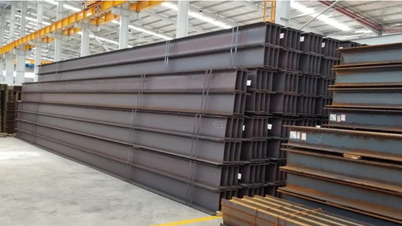

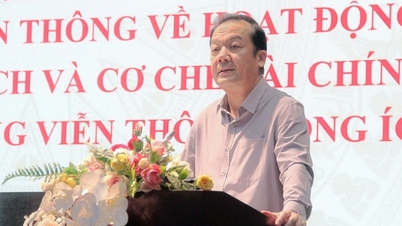

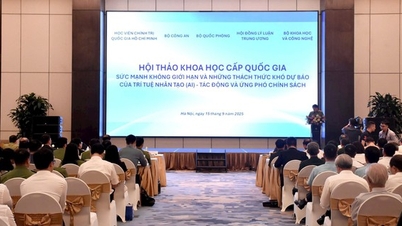
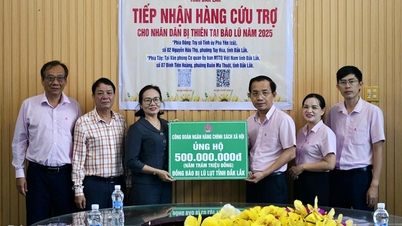

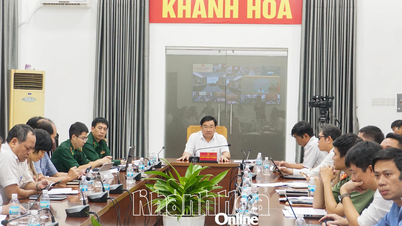



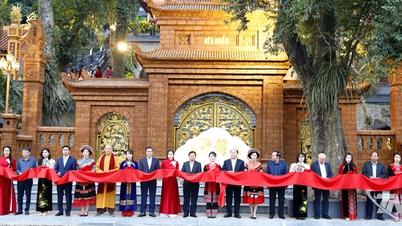

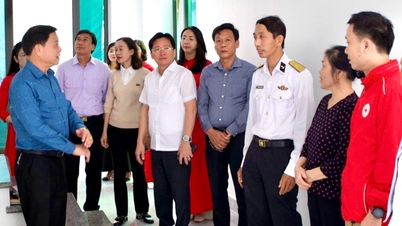
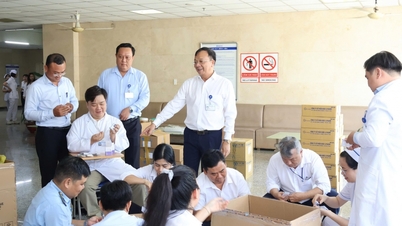













Comment (0)